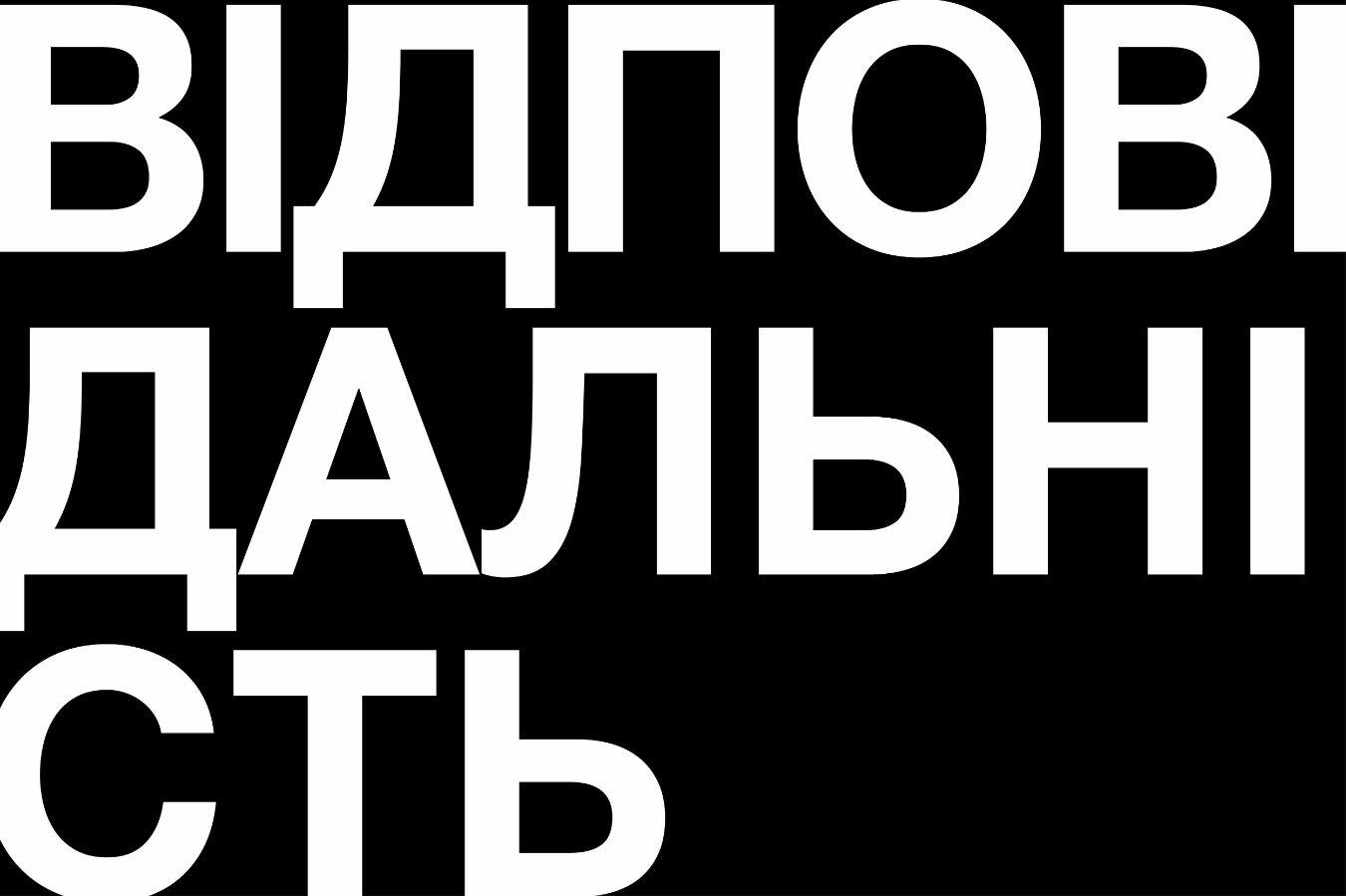Talk | 10 Treffen: Responsibility Treffen
Postcolonialism in Ukrainian Culture

Colonial responsibility and ongoing postcolonial processes will be the subject of a discussion on the transgenerational experience and subjectivity of today’s Ukraine.
The understanding of the consequences of colonial rule for the former or current colonies and the colonising countries is usually associated with the invasive communication of the „Western world” with the „non-Western world”. Influenced by the process of the shifting optics of Occidentalism, the critical potential of analysing the post-Soviet situation is sufficient to change the distant optics of colonisation to a “neighborly” one, taking the consequences into account. The transgenerational testimonies and experiences of the Ukrainian people related to political, economic, linguistic and protest movements form a modern model of the post-colonial struggle and the determination of visibility for peoples and countries colonised by the Russian Empire, the Soviet Union and now the Russian Federation.
Biographies of the participants:
Franziska Davies is an historian of Eastern European History at the University of Munich. She specialises in the modern history of Poland, Ukraine and Russia. She has published in particular on the history of imperialism, multi-ethnicity and multi-religiosity in Eastern Europe. Last year she published a book on “Eastern Europe’s Open Wounds” with Katja Makhotina, which deals with the history and remembrance of the Second World War in Eastern Europe. In 2022, the book was awarded the Bavarian Book Prize in the category “non-fiction”. At present, she is working on a comparative history of protest movements in Poland, Great Britain and (Soviet) Ukraine in the 1980s and early 1990s.
Vasyl Cherepanyn is head of the Visual Culture Research Center (VCRC), an institution he co-founded in Kyiv in 2008 as a platform for collaboration among academic, artistic and activist communities. VCRC is the organiser of the Kyiv Biennial and a founding member of the East Europe Biennial Alliance. Cherepanyn holds a PhD in philosophy (aesthetics) and has lectured at the National University of Kyiv-Mohyla Academy, European University Viadrina Frankfurt (Oder), University of Helsinki, Freie Universität Berlin, Merz Akademie in Stuttgart, University of Vienna, Institute for Advanced Studies in Warsaw, and University of Greifswald.
Magda Szpecht is an artist and journalist, creator of installations and performances. She graduated in directing at the State Higher School of Theatre Arts in Krakow, and before that in journalism and social communication at the University of Wrocław. Her work combines research and activism, and the main themes of her work are feminism and new technologies. Since the beginning of the full-scale Russian invasion in Ukraine, she has been active as a Cyber Elf, fighting Russian propaganda and providing technological support to those affected by the war.
Alona Karavai is сo-founder of the NGO Insha Osvita, the residency house Khata-Maysternya, the arts gallery Asortymentna Kimnata and the media about art post impreza. She is a social investor at Urban Space 500, and co-organiser of the PORTO FRANKO festival. Since 2022, Karavai has been head of the board of the international association MitOst e. V. She has studied organisational development at TU Kaiserslautern. Her professional interests are cultural management and curating, visual art and music, organisational development and educational products.
Franziska Davies – Author and historian of Eastern European History
Vasyl Cherepanyn – Philosopher and Head of the Visual Culture Research Center
Magda Szpecht – Director, artist and journalist
Host Alona Karavai – Curator and Head of the Board of the international association MitOst e. V.
The event is funded by the Federal Agency for Civic Education/bpb.
Informational support by the Ukrainian Institute.